All In a Word
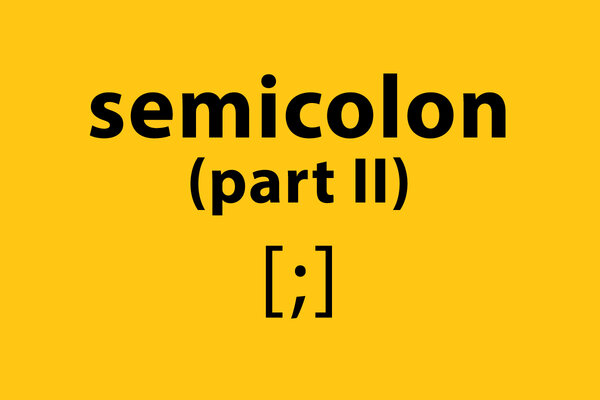 Semicolons Part 2: When to use themWe use many punctuation marks intuitively. Periods, for example, land at the end of sentences without any problem. But semicolons? Not so easy.
Semicolons Part 2: When to use themWe use many punctuation marks intuitively. Periods, for example, land at the end of sentences without any problem. But semicolons? Not so easy.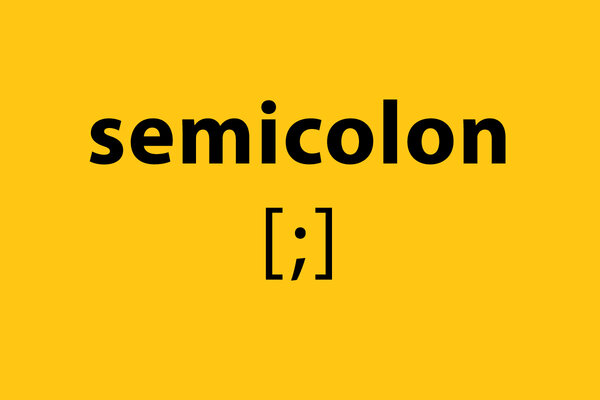 Getting the skinny on the semicolonThe semicolon can inspire strong emotions. Kurt Vonnegut said “All they do is show you’ve been to college,” and George Orwell detested them.
Getting the skinny on the semicolonThe semicolon can inspire strong emotions. Kurt Vonnegut said “All they do is show you’ve been to college,” and George Orwell detested them.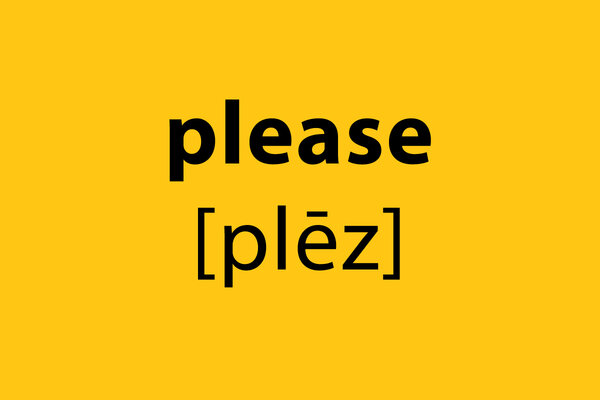 Avoiding the pitfalls of ‘please’Many Scandinavians frown on tipping, and they’re not too keen on please or thanks (as English-speakers think of them) either.
Avoiding the pitfalls of ‘please’Many Scandinavians frown on tipping, and they’re not too keen on please or thanks (as English-speakers think of them) either. The role of ‘you’re welcome’ in polite societyWhat “you’re welcome” means is less important than what it does. Even small favors can create a feeling of obligation on the part of the recipient.
The role of ‘you’re welcome’ in polite societyWhat “you’re welcome” means is less important than what it does. Even small favors can create a feeling of obligation on the part of the recipient.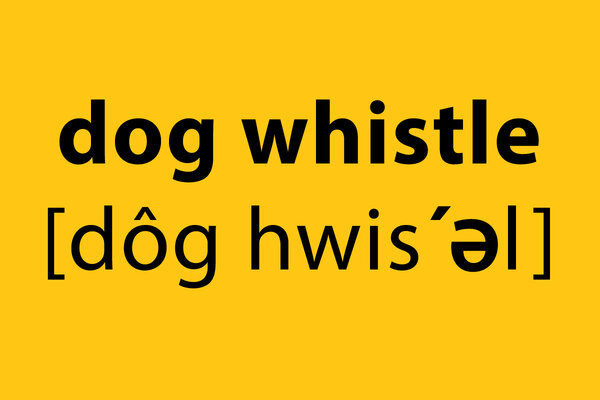 The power of political dog whistlesThe 2016 and 2018 elections were the headiest of times for dog whistles, but we might be about to say goodbye to them.
The power of political dog whistlesThe 2016 and 2018 elections were the headiest of times for dog whistles, but we might be about to say goodbye to them. Are you team Oxford comma or not?The debate surrounding the serial comma is about more than just clarity and style. Now, an Oxford buried in your writing is a social statement.
Are you team Oxford comma or not?The debate surrounding the serial comma is about more than just clarity and style. Now, an Oxford buried in your writing is a social statement.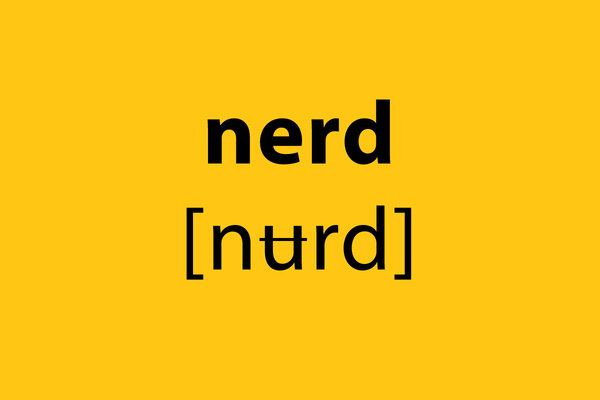 Surprisingly old words that seem contemporaryFake news was not coined by President Donald Trump, though he suggested something of the sort in a 2017 interview.
Surprisingly old words that seem contemporaryFake news was not coined by President Donald Trump, though he suggested something of the sort in a 2017 interview.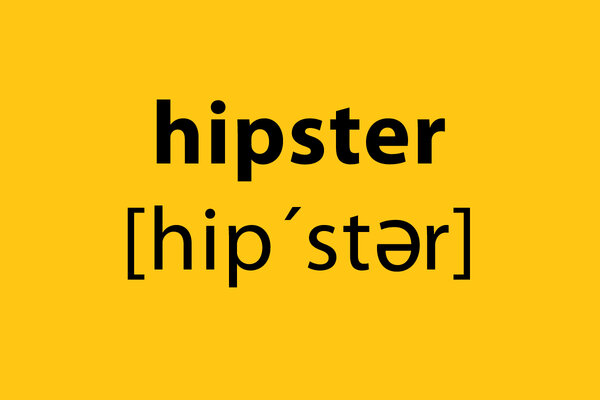 Did people say that back then, too?This week we have one final set of examples of words that are surprisingly old: computer, hipster, dude, and “No pain, no gain.”
Did people say that back then, too?This week we have one final set of examples of words that are surprisingly old: computer, hipster, dude, and “No pain, no gain.”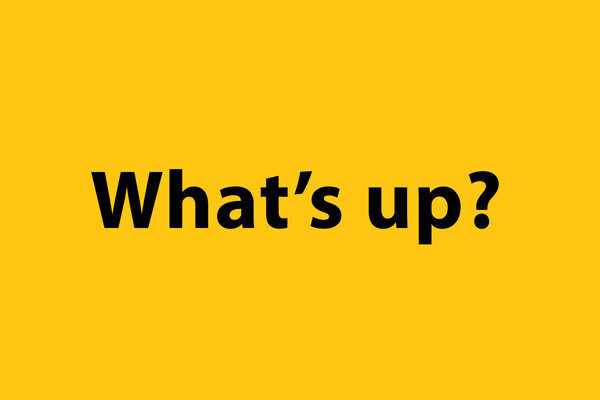 Some words are older than you might thinkIt’s common to hear “What’s up?” as a greeting today, but you may be surprised that Sherlock Holmes, the Victorian detective character, said it too.
Some words are older than you might thinkIt’s common to hear “What’s up?” as a greeting today, but you may be surprised that Sherlock Holmes, the Victorian detective character, said it too.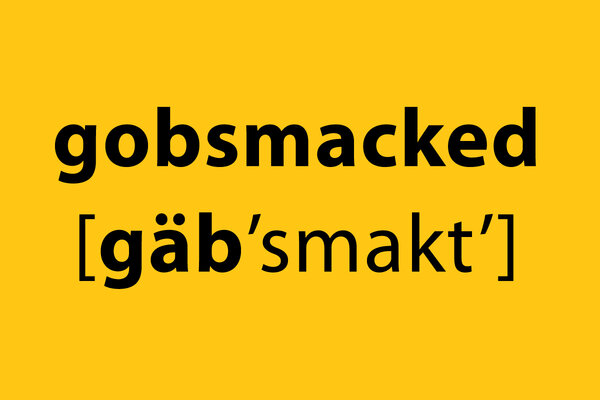 ‘Gobsmacked’ and other astonishing wordsMy London-born mother-in-law has been known to jokingly say “shut your gobs!” to my children. Getting smacked in the gob will make you stop gabbing.
‘Gobsmacked’ and other astonishing wordsMy London-born mother-in-law has been known to jokingly say “shut your gobs!” to my children. Getting smacked in the gob will make you stop gabbing. An octopus has many arms, and also plural formsOctopus came into English only in the 18th century. Before then, these creatures had been referred to as poulps or prekes with a nice, easy “s.”
An octopus has many arms, and also plural formsOctopus came into English only in the 18th century. Before then, these creatures had been referred to as poulps or prekes with a nice, easy “s.” Confused by plural nouns? Blame Latin.English speakers often run into trouble when grappling with plural nouns because of their Latin roots.
Confused by plural nouns? Blame Latin.English speakers often run into trouble when grappling with plural nouns because of their Latin roots. You can’t keep a good fan downHaving such unbridled enthusiasm hasn’t always been considered a good thing. But baseball brought fan back.
You can’t keep a good fan downHaving such unbridled enthusiasm hasn’t always been considered a good thing. But baseball brought fan back. Sugary words that set your teeth on edgeHumans were more than happy with sugar for 1,000 years or so, until a Baltimore chemist accidentally invented another artificial sweetener in 1878.
Sugary words that set your teeth on edgeHumans were more than happy with sugar for 1,000 years or so, until a Baltimore chemist accidentally invented another artificial sweetener in 1878. Taking the edges off saber-rattlingMuch diplomacy these days seems to consist of “saber-rattling.” Why is this old-fashioned-sounding term still part of the political lexicon?
Taking the edges off saber-rattlingMuch diplomacy these days seems to consist of “saber-rattling.” Why is this old-fashioned-sounding term still part of the political lexicon? Business jargon isn’t in her wheelhouseWhat is a wheelhouse, and why are businesspeople so concerned with establishing what’s in it?
Business jargon isn’t in her wheelhouseWhat is a wheelhouse, and why are businesspeople so concerned with establishing what’s in it? The waning use of the word ‘whom’Whom is now mostly relegated to written language, appearing in literature, academic papers, and the Mueller report.
The waning use of the word ‘whom’Whom is now mostly relegated to written language, appearing in literature, academic papers, and the Mueller report. More to ‘redaction’ than meets the eyeAttorney General William Barr's redactions to the Mueller report were intended to leave out information, but there's still plenty there to learn.
More to ‘redaction’ than meets the eyeAttorney General William Barr's redactions to the Mueller report were intended to leave out information, but there's still plenty there to learn. Is it better to be exonerated or vindicated?Since the Mueller report was released, all sorts of words for "not guilty" are cropping up in the media.
Is it better to be exonerated or vindicated?Since the Mueller report was released, all sorts of words for "not guilty" are cropping up in the media. The word ‘manifesto’ implies logic and consistencyThere are many words to describe an angry discourse. What's the best term for the words published by the Christchurch, New Zealand shooter?
The word ‘manifesto’ implies logic and consistencyThere are many words to describe an angry discourse. What's the best term for the words published by the Christchurch, New Zealand shooter?